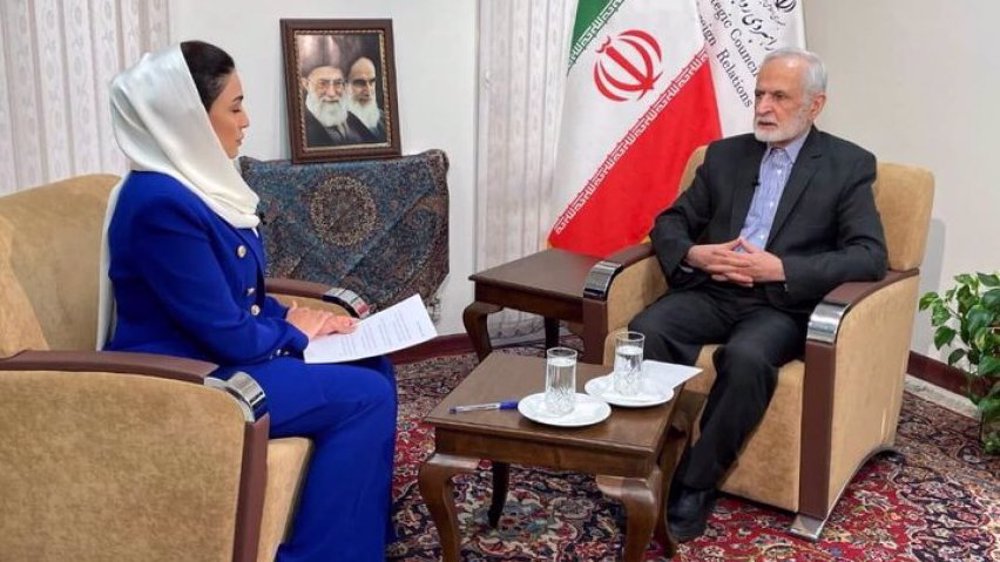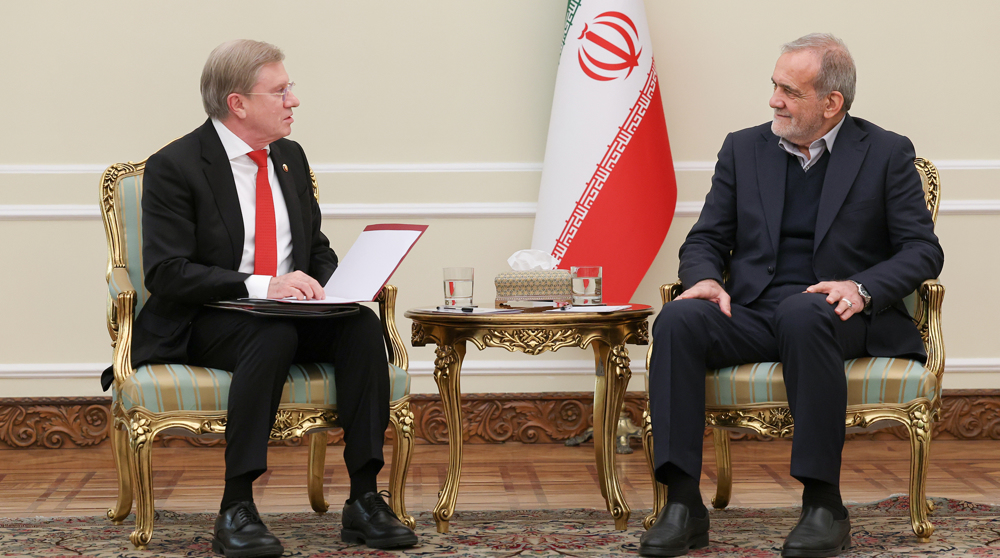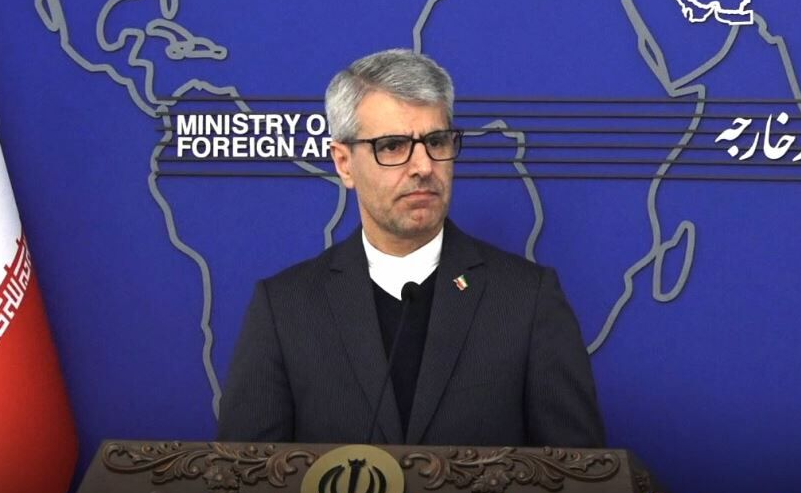UN chief’s report violates JCPOA spirit: Iran
Iran says the latest report by United Nations Secretary General Ban Ki-moon on the implementation of last July’s nuclear agreement between the Islamic Republic and the P5+1 group of countries violates the letter and spirit of the deal.
Speaking ahead of a scheduled meeting of the UN Security Council in New York on Monday, Iranian Foreign Ministry spokesman, Bahram Qasemi, dismissed as unbalanced and biased the UN chief’s report about the implementation of the council’s Resolution 2231 that endorsed the nuclear agreement, known as the Joint Comprehensive Plan of Action (JCPOA).
“This report runs counter to the letter and spirit of the JCPOA and even the Resolution 2231,” Qasemi said, adding, “This report has been drawn up under obvious pressure by the US on the United Nations secretariat and the allegations made in it against Iran are baseless.”

On July 7, Reuters quoted a confidential report by the UN secretary general as saying that Iran's ballistic missile launches “are not consistent with the constructive spirit” of the JCPOA.
Ban, however, said that it is up to the UN Security Council to decide if Iran’s missile launches violated the resolution the Security Council adopted last year as part of the nuclear agreement.
"I call upon Iran to refrain from conducting such ballistic missile launches since they have the potential to increase tensions in the region," the UN chief wrote in his first biannual report to the 15-member Security Council.
The Iranian spokesperson further described as a positive move the UN chief's inclusion in his report of the failure of the US and the Western sides to fulfill their obligations under the JCPOA.
“However, it is regrettable that the report ignores such cases very easily and refrains from making a serious request on the P5+1 members to remain committed to their obligations,” Qasemi added.
He emphasized that the international community expects the UN chief to explicitly state the cases of the failure of the US and some members of the P5+1 to fulfill their JCPOA obligations, an issue which has been verified by many countries.
“The expression of concern by the report about Iran’s missile tests was a completely spiteful and biased move because the secretary general has made comments about the issue in blatant violation of the very content of Resolution 2231 and by merely resorting to criteria declared by the US, which violate all professional principles,” the spokesman said.
“The Islamic Republic of Iran once again emphasizes that Iran’s ballistic missiles by no means fall within the jurisdiction of Resolution 2231, because they have not been designed to carry nuclear warheads and the Islamic Republic of Iran will, therefore, not allow anyone to even opine about its defense system,” Qasemi pointed out.
He said the JCPOA was the outcome of long-term collective measures in order to find a diplomatic solution to a fabricated and unnecessary crisis, adding that the agreement’s longevity requires the political will of all sides to remain committed to their obligations as well as professional and supportive measures by bodies such as the UN.
He once again reiterated Iran’s commitment to its obligations but emphasized that the country would “take exigent reciprocal action” in case the other sides fail to honor their part of the deal.
Qasemi emphasized that it has been repeatedly proved that the adoption of hostile approaches by the UN Security Council against Iran will bear no fruit.
“The Islamic Republic of Iran warns that repetition of previous experiences will poison the spirit of the JCPOA and the positive atmosphere created as its result and this will never be beneficial to any side and the international community,” he said.
On March 9, Iran successfully test-fired two ballistic missiles as part of military drill to assess its defense capabilities. The missiles dubbed Qadr-H and Qadr-F were fired during a large-scale drill, code-named Eqtedar-e-Velayat.
A day earlier, the country’s Armed Forces had fired another ballistic missile called Qiam from silo-based launchers in different locations across the country.
The US claims that Iran’s missile tests violate the UN Security Council Resolution 2231.
Resolution 2231 adopted on July 20, 2015 provides for the termination of the provisions of previous Security Council resolutions on the Iranian nuclear program and establishes specific restrictions that apply to all states without exception.
The resolution calls upon Iran not to undertake any activity related to ballistic missiles designed to be capable of delivering nuclear weapons, including launches using such ballistic missile technology.
VIDEO | Yemeni forces repel US-British attack, down F-18 Jet
Iran’s capabilities vast; enemy’s ‘maximum pressure’ policies all failed miserably: Senior official
Iran’s economy grew 2.7% y/y in Sep quarter: CBI
VIDEO | Freelancers in Gaza strive to stay online amid genocide
Mikati demands Israel's withdrawal from south Lebanon
Yemeni army strikes Israeli military sites with drones
‘Clock ticking’: UNRWA slams unjustifiable killing of children in Gaza
BP to be sued in Britain for supplying oil to Israel










 This makes it easy to access the Press TV website
This makes it easy to access the Press TV website